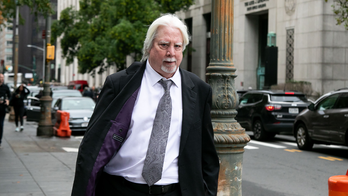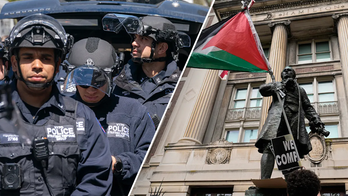As the Senate prepares to take up the defense appropriations bill next month and possibly repeal the military's "Don't Ask, Don't Tell" policy, one senior U.S. military official explained Tuesday why he supports the current law.
Marine Commandant General James Conway told reporters, "We have some people that are -- that are very religious, and I think in some instances -- I couldn't begin to give you a percentage -- but I think in some instances we will have people that say that homosexuality is wrong and they simply do not want to room with a person of that persuasion because it would go against their religious beliefs."
In response to why Marines appeared to have more of an issue with changing the policy than perhaps other branches of the military, he offered, "That's a tough question to answer because I'm not as familiar with the other services as I am my own Corps...we recruit a certain type of young American, a pretty macho guy or gal, that is willing to go fight and perhaps die for their country."
He added, "We are forced to live in close proximity aboard ship, in the field for long periods of time and that type of thing...and we'd just as soon not see it change."
General Conway's comments come one day after Pentagon officials mailed out 150,000 "Don't Ask, Don't Tell" surveys to military spouses, seeking input about the potential dismantling of the federal law that bans openly gay, lesbian or bisexual applicants from serving.
"We're anxious to see what the survey indicates when it's made public toward the end of the year...but if the law changes, we pride our Corps in leading the services in many, many things, and we're going to have to lead in this too. We've got a war to fight, and we need to, if the law changes, implement and get on with it."
Last February Conway told the Senate Armed Services Committee, "At this point, I think that the current policy works. My best military advice to this committee, to the secretary, to the president would be to keep the law such as it is."
It appeared Tuesday he had not changed his stance on the issue.
"Unlike the other services, we have consciously, for decades now, billeted by twos. So if the law changes, we start out with a problem in terms of how to address that...I do not believe there's money out there to build another requirement for BEQs (Bachelor Enlisted Quarters) to allow every Marine to have a room by his or herself. So how we deal with the billeting problem is going to be one of that myriad of issues that we'll have to face."
President Obama called for a repeal of the law in his State of the Union address earlier this year, and shortly after Defense Secretary Robert Gates told members of the Senate Armed Services Committee, "The question before us is not whether the military prepares to make this change, but how we best prepare for it. We have received our orders from the commander in chief and we are moving out accordingly."
The "Don't Ask Don't Tell" policy was enacted under President Clinton in 1993 and has been a political lightning rod since its implementation.
"I am mindful...that attitudes towards homosexuality may have changed considerably - both in society and in the military," Gates said.
The House voted in May to repeal the controversial policy, 234 to 194.
Conway, who will step down this fall following more than 40 years of service, acknowledged Tuesday, "As commander, you try to satisfy the requirements of all your Marines. And if the law changes and we have homosexual Marines, we'll be as concerned about their rights, their privileges, their morale as we will Marines who feel differently about that whole paradigm. So commanders -- local commanders -- will be required to assist us in making sure that every Marine is provided for and is focused on the fight at hand."




